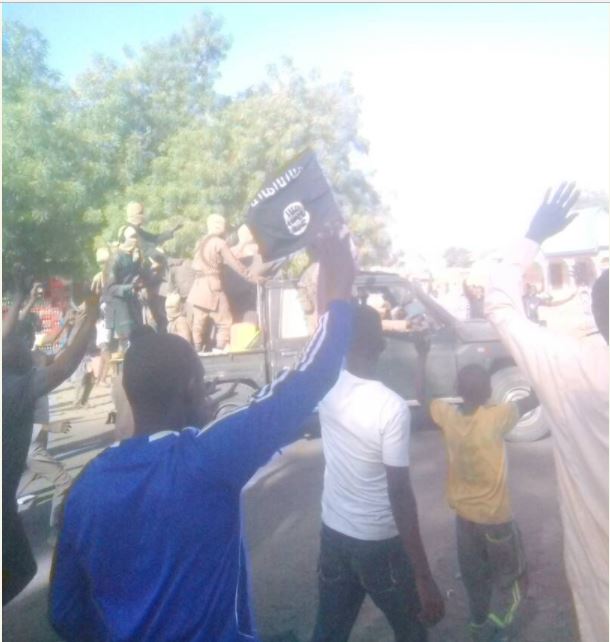One of the residents of Dapchi town was brave enough to approach the militants dropping off the over 100 Dapchi girls during which some information was retrieved from them.

The Dapchi residents waving at the terrorists
Boko Haram has released more than 100 of the schoolgirls it abducted last month, returning them to their village in north-east Nigeria.
Waving the black and white flag used by the Islamic State and wearing balaclavas, military fatigues and ammunition belts, members of the group released most of the girls they had abducted in Dapchi early on Wednesday morning.
On 19 February armed militants pretending to be soldiers and escaped. The Nigerian government was initially slow to act but then said it would negotiate with the group for the girls. It has denied any ransoms were paid.
Witnesses said the militants pulled up near Dapchi police station on Wednesday and shouted that parents should pick up their daughters.
Initially, villagers ran away fearing another attack. But when they realised what was happening, they began to cheer and wave at the militants, chasing after their pickup trucks, some recording videos on their phones.
“Dapchi is full of joy,” said Mohammed Mdada, who saw the girls being whipped as they were driven away a month previously. He said the militants apologised to some of the girls’ parents in their language, Kanuri, and shook their hands before driving off.
“They said that if they knew they were Muslim girls they wouldn’t have abducted them,” Mdada said.“They warned the girls that they should stay away from school and swore that if they came back and found any girl in school, they’d abduct them again and never give them back.”
One of the goals of Boko Haram – which has kidnapped thousands of girls, boys and women, forcing some of them to blow themselves up, killed thousands of others and displaced millions – is to stop children receiving what it perceives as western-style education.
Usman Mataba, whose niece was among those returned, said she had talked to the militants. “I approached them and they told me that they had brought all the girls except six – that five had died on the day they were taken,” he said. “They said they discovered they were dead when they arrived at their destination, so they buried them.”
Mdada said he had been told the five girls were trampled to death. The sixth had “refused to cooperate” with them, Mataba said.
Source: The Guardian

Post a Comment